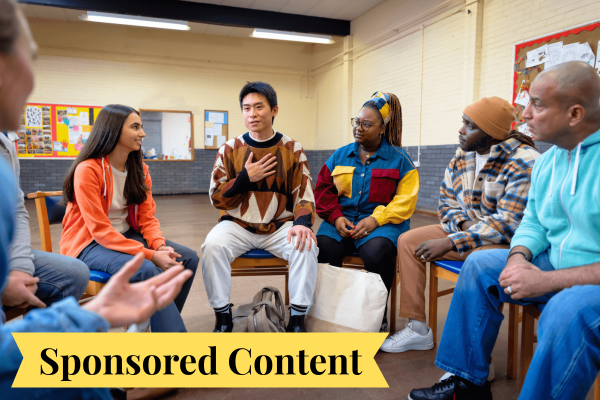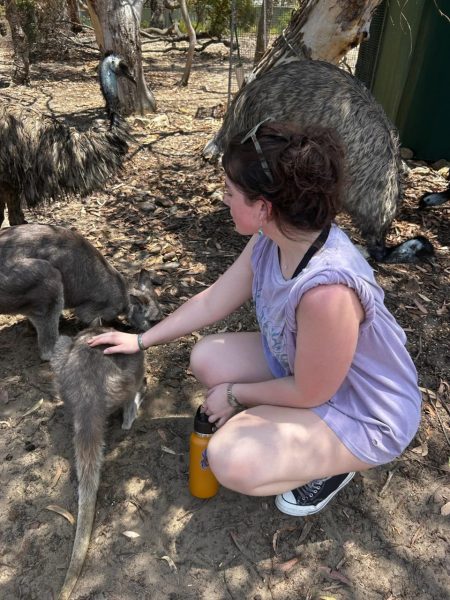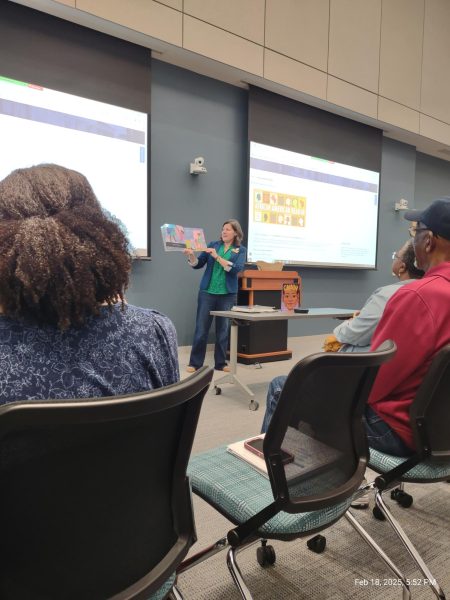UNCW hosts first Summer Writers Conference
Writers from across the city, state and country came together June 28-30 at UNC Wilmington for its inaugural Summer Writers Conference, hosted by the Creative Writing Department, in partnership with Randall Library and the Osher Lifelong Learning Institute.
The three-day conference included genre workshops in fiction, non-fiction and poetry, as well as several roundtable discussions and a keynote address by renowned author and creative writing professor, Clyde Edgerton.
Edgerton hopes that this conference will be the first of many for the department.
“I hope this conference has a long history. It gives people from the outside a chance to experience that kind of history that goes on for our creative writers [UNCW students],” he said.
In his keynote speech on Saturday evening, Edgerton hoped to be both inspirational and informative for the group of conferees. The writing professor spoke about his growth as an author in the context of academic freedom, free speech and the role of the press by telling the story of the responses to his first published novel “Raney.”
Emily Smith, director of UNCW’s publishing laboratory and director coordinator of the Summer Writers Conference, said that a partial intent of the conference was to feature the creative writing department’s faculty.
New faculty member Nina de Gramont taught the workshop for fiction; MFA coordinator Lavonne Adams for poetry; and lecturer Wendy Brenner for non-fiction. The three instructors shared their own work at a reading on the first night of the conference.
“There are so many people in the area and the region who are writers outside their regular full-time jobs. We’ve just been really lucky that we’ve always had a lot of people who want to come here [to the beach] and write,” Brenner said. “It’s a very talented population of people who want to come in and work with writers, people who don’t always necessarily want to get a degree.”
Brenner appreciates the opportunity to teach in a concentrated, immersion-style workshop. She, Smith and Edgerton agree that this conference allows for more hands-on interaction.
“I’m going to come in with a wide range of potential activities for class, like different prompts and inspirations, depending on what the students are looking for right now. It’s sort of improvisational,” Brenner said before the conference.
Conferee Elaine Marshall, who traveled from Wilson, N.C., enjoyed the small classroom intimacy of the poetry workshop.
“In my workshop there were only four of us, so it was a very intensive workshop. It’s been a good mix of working and socializing,” she said.
The poetry group was the smallest, while non-fiction had six students and fiction had seven. Students were also offered individual sessions with the instructors if, for example, they wanted a manuscript critique.
Some writers are already published authors, while others have works in progress or simply want to exercise their creativity. For those interested in the publishing world, a tour of UNCW’s publishing laboratory was offered, along with discussions about small press publication.
As both the director of the publishing laboratory and the founder of UNCW’s small press publication, Lookout Books, Smith believes that this conference is yet another accomplishment that shows that the department is getting national attention.
She is hopeful that the Summer Writers conference will appear again next year, and she has visions for other conferences in the future.











